The Scrapyard Detectives #1-3
The United States is a country of different races and cultures. It’s a melting pot of immigrants who have come to the US to start a new life or escape persecution in their home countries. This has led to discrimination and violence between groups for no other reason than the color of their skin or the country they come from. How do you explain these incidents to kids and why they are wrong? Smiles for Diversity, a non-profit program, is taking on this issue with a series of comic books to help teachers and other inform children about diversity and prevent hate crimes.
Writers: Chad Denton & Bill Galvan (#1), Nathan Shumate (#2), Jesse Leon McCann (#3)
Artist: Bill Galvan
All Ages
Smiles for Diversity/Diversity Ink, 2003-2006
20 pgs/ea, Free
First published in 2003, The Scrapyard Detectives is about three friends who meet in a local scrapyard and solve mysteries in their community. The characters are the essence of diverstiy. Robert, an African-American, is the defacto leader. He likes to tinker, building gadgets and inventions. He builds all the devices that the detectives use to get their evidence. Raymond, a Latino, is very outgoing and into sports and filming. He has a digital video camera that he takes everywhere. Jinn, a 3-for-1, is an Asian-American, disabled female. She is recovering from surgery on her leg to remove bone cancer, so is always in a wheelchair, but she still fully participates in all the adventures and does a lot of the research.
ADVERTISEMENT
ADVERTISEMENT
The stories all involve mysteries that inevitably have a connection to, or be construed as discrimination or a hate crime. Of the three I read, the first story is the weakest. It is the introduction story of not just the characters, but also the concept, so suffers slightly. A new family from India has moved into the neighborhood, and the detectives go to meet them and their son Lisan, who is also their age. The next day, it’s discovered the rose garden that Lisan’s mother planted has been torn up, and it’s up to the detectives to discover who did it and why. It’s not much of a mystery, as the culprit is fairly obvious. It isn’t a hate crime either, though it could be seen that way. But, it establishes the characters and the way the rest of the series will go.
The second issue is the strongest of the three. It’s tightly written, and not only deals with discrimination of  immigrants, but also how patriotism can be used to do so. It’s the 4th of July, and the town is dedicating a new Community Center for the growing immigrant communities in the city. Mike, a dedicated patriot, doesn’t like the new Community Center since he believes that the new arrivals are taking advantage of freedoms "real" Americans died for. He decides to set a fire near the center as a wake up call, but instead ends up burning the whole thing down. It’s then up to our detectives to find out Mike’s identity and expose him. Once they do, Mike literally reverts to flag waving to defend his stance, but a twist revelation from his father knocks him from his soap box.
immigrants, but also how patriotism can be used to do so. It’s the 4th of July, and the town is dedicating a new Community Center for the growing immigrant communities in the city. Mike, a dedicated patriot, doesn’t like the new Community Center since he believes that the new arrivals are taking advantage of freedoms "real" Americans died for. He decides to set a fire near the center as a wake up call, but instead ends up burning the whole thing down. It’s then up to our detectives to find out Mike’s identity and expose him. Once they do, Mike literally reverts to flag waving to defend his stance, but a twist revelation from his father knocks him from his soap box.
This story hits a lot of issues, and gives a lot for someone to think about and/or a teacher to discuss in class. It brings up what it really means to be a patriot, and that country of origin isn’t important. It also shows how blind patriotism can hurt more than help a people or country. It also contrasts comic book super heroism with the real life heroism of firemen. I was most impressed with this story not just for taking on these topics for kids, but for doing it at a time when it was popular to be patriotic. It was printed in 2004, not long after the start of the Iraq War, when misguided patriotism could have lead to situations like this. Because we the reader knows who the perpetrator is, we get to see his inner thoughts and understand why he does what he does even if we don’t agree with it.
 The third issue, while the story is well written, seems to stray from the intent of the series and makes less of an impact than it could have. There’s too much going on and some really big conclusion-jumping that dilute the real issue. Ray is on the football team, and his teammate Ben has gone missing. Ray wants to investigate but Robert and Jinn don’t because of the way Ben treats them. Ray goes off on his own while Robert and Jinn try to find a lost dog and figure out who’s been stealing food from their clubhouse. Ray asks around and finds out Ben’s been having a tough time at home with his new step-dad. The others finally agree to help Ray find him, and after reviewing a video tape of the game where Ben was last seen, they jump to the conclusion that Ray could have been killed by his step-dad. Ray learns the truth about that while Robert and Jinn find their robber. All the loose ends are tied at the end, including why Ben was so mean to Robert and Jinn, and the lost dog.
The third issue, while the story is well written, seems to stray from the intent of the series and makes less of an impact than it could have. There’s too much going on and some really big conclusion-jumping that dilute the real issue. Ray is on the football team, and his teammate Ben has gone missing. Ray wants to investigate but Robert and Jinn don’t because of the way Ben treats them. Ray goes off on his own while Robert and Jinn try to find a lost dog and figure out who’s been stealing food from their clubhouse. Ray asks around and finds out Ben’s been having a tough time at home with his new step-dad. The others finally agree to help Ray find him, and after reviewing a video tape of the game where Ben was last seen, they jump to the conclusion that Ray could have been killed by his step-dad. Ray learns the truth about that while Robert and Jinn find their robber. All the loose ends are tied at the end, including why Ben was so mean to Robert and Jinn, and the lost dog.
The point of this story should have been about Ben struggling to deal with his step-dad’s prejudice attitudes, as well as Robert and Jinn’s feelings. The story started out in this direction, but got detoured with the "Is that a body in the bag?" red herring. Since so much time was given to this thread, Ben’s issues are rushed through at the end, only getting a few panels to explain everything. This leads to the dramatic rescue from the cover, and an unbelievable change of heart by Ben’s step-dad. Instead of going for the improbable "murder", the detectives should have considered the obvious that Ben had run away. Searching for him and getting to talk to him would have made a more focused story. It could have touched on not just the prejudiced attitudes of parents, but also that running way doesn’t solve anything. This was a missed opportunity, which is too bad.
Overall, The Scrapyard Detectives succeeds in it’s goal to introduce these difficult issues to kids. The stories portray realistic situations that kids can relate to and teachers can use in a classroom environment. They are not overly pandering, and don’t need the "And knowing is half the battle" tagline at the end. They tell a complete story that makes it’s point. The website has lesson plans teachers can use with the books, as well as an order form that can be used to get books for free. If you need a new or innovative way to discuss these issues in a school or community, these books will do the job nicely.
Filed under: Uncategorized
About Lori Henderson
Lori Henderson is a mother of two teenage daughters and an avid reader. She blogs about manga at her personal blog Manga Xanadu as well as contributing and editing for Manga Village. She blogs about all things fandom (mainly Doctor Who) at her other personal blog Fangirl Xanadu. She's been at it so for over 5 years now and counting!
ADVERTISEMENT
ADVERTISEMENT
SLJ Blog Network
The Moral Dilemma of THE MONSTER AT THE END OF THIS BOOK
Cover Reveal and Q&A: The One and Only Googoosh with Azadeh Westergaard
Parsing Religion in Public Schools
ADVERTISEMENT

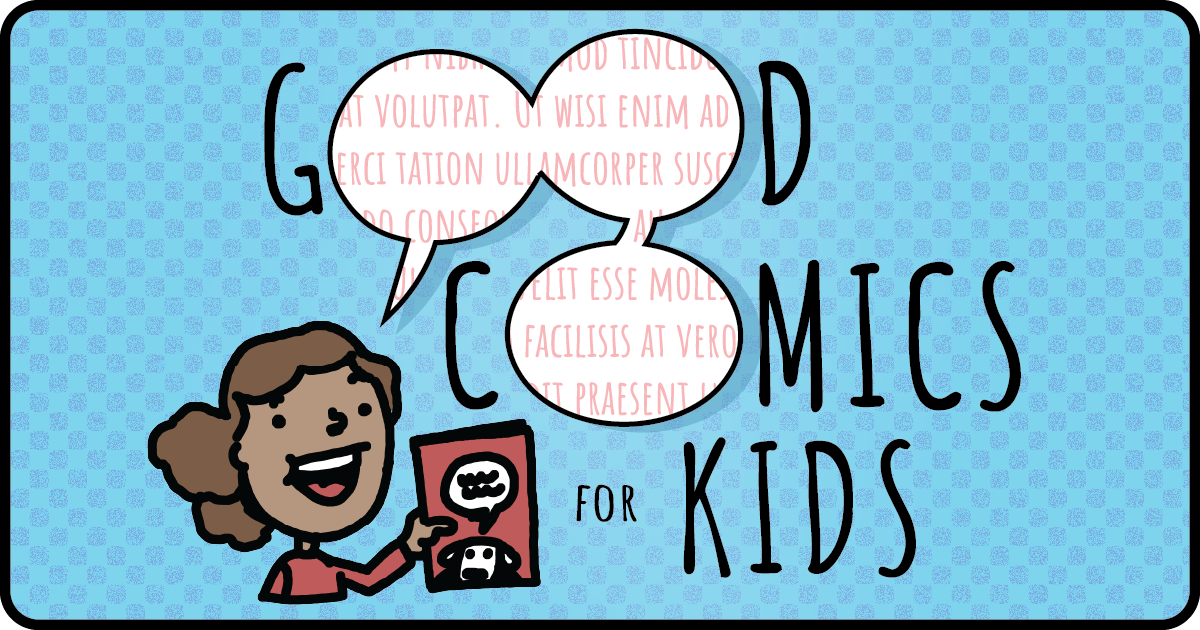
 The Scrapyard Detectives #1-3
The Scrapyard Detectives #1-3
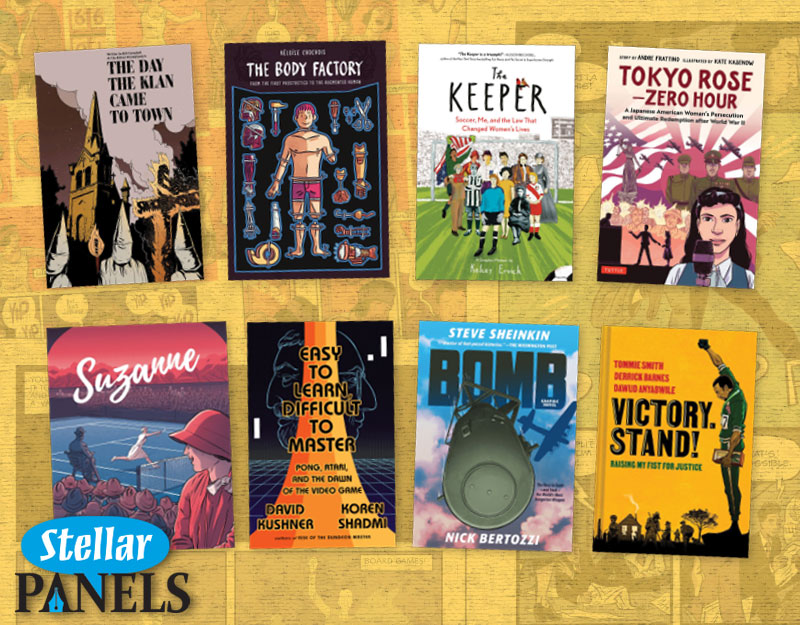

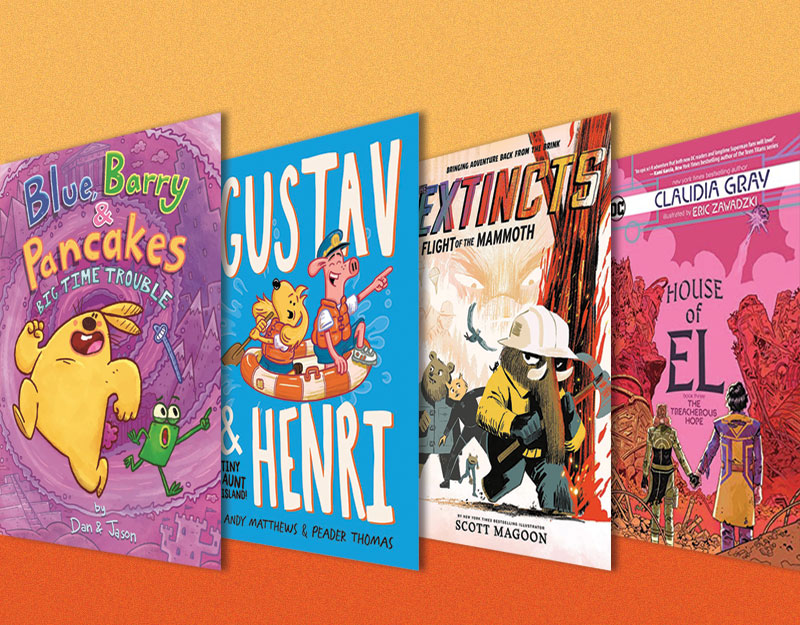
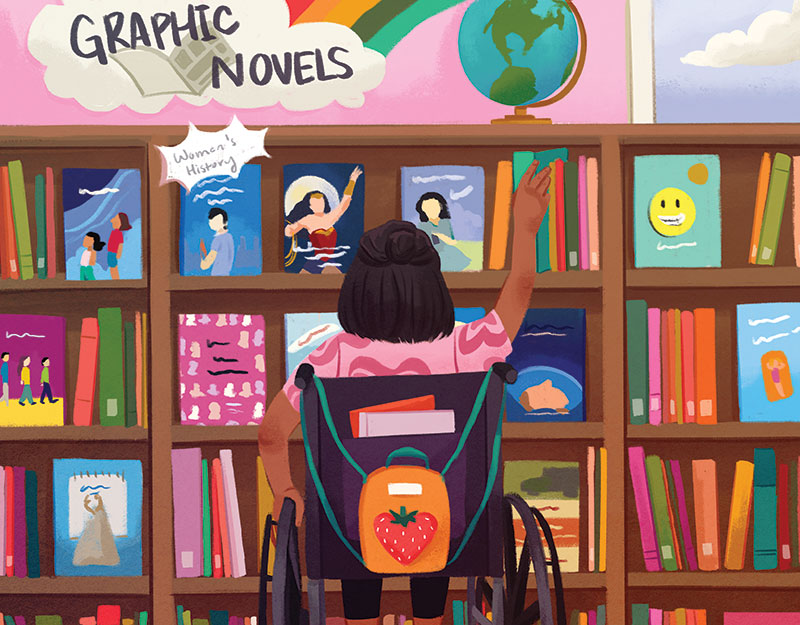
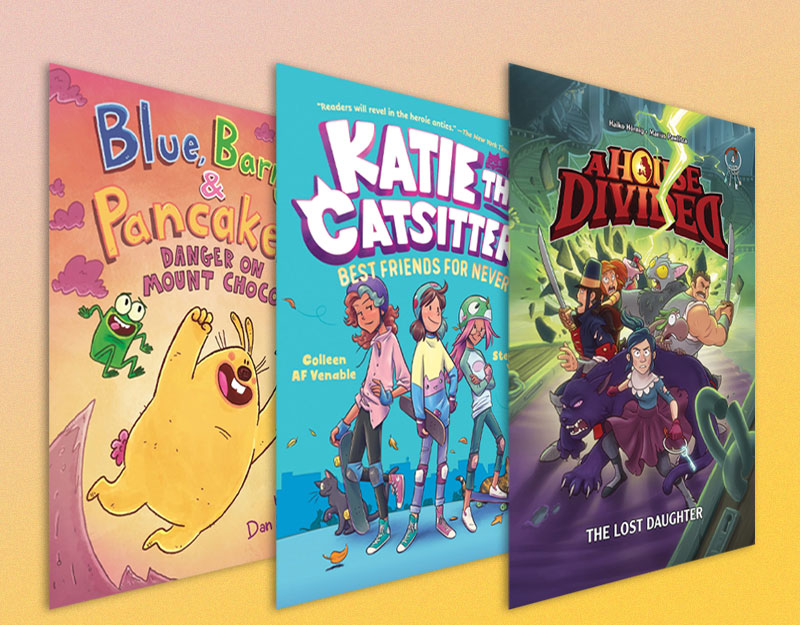
I have read some of the Scrapyard dectives before. Lori Henderson expresses her feelings very well.